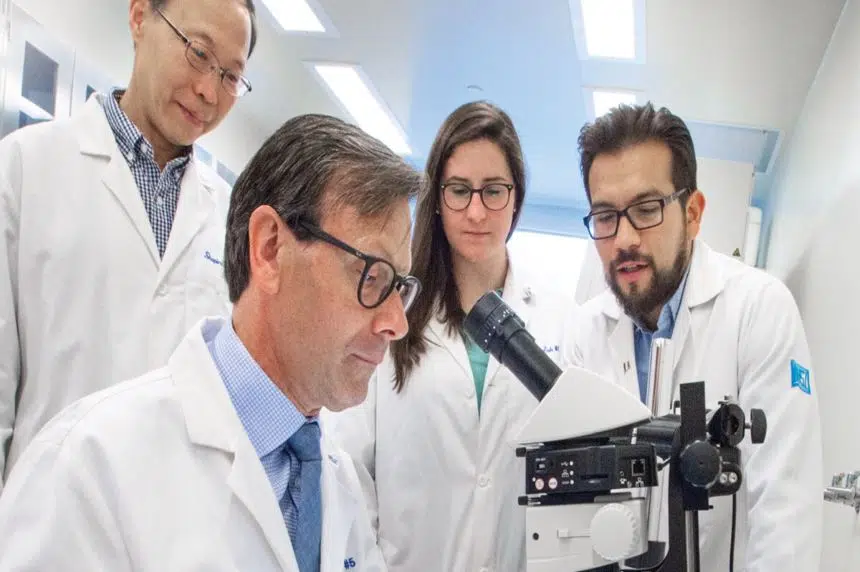Scientists at the University of Alberta believe they’ve come up with a way to cure diabetes.
Dr. James Shapiro is the lead scientist working on the project. He spoke with 650 CKOM’s Brent Loucks Thursday, insisting now that they’ve done it in mice, they hope it can be done in humans as well.
For the last 20 years cell transplants have been carried out in patients with difficult to control Type 1 diabetes, he says. The cells have come from organ donors.
“So we know that if we’re looking for a treatment in the future and a potential cure, we’re never going to be able to rely on organ donors. There’s very few organ donors…but if we look at 450 million people in the world with all forms of diabetes, we know that there’s a supply problem,” he explained.
The other challenge with the transplants is the need for anti-rejection medications. Those, Shapiro adds, come with a set of potential problems themselves, like increasing the risk of certain cancers and life-threatening infections.
Now, he says he and his team have taken blood samples from patients with different forms of diabetes, and from that they take the white blood cells.
Using new stem cell techniques, they can “re-program” those cells.
“They allow cells to go back to their original state, like they would be — they’re re-set in a sense — like they would be in a very tiny, early embryo,” he explains. “And then we can wind those cells forward in time…we can do that over 27 days. We can turn these cells into human cells that produce insulin just like they would inside the pancreas.”
When those cells are transplanted into mice, their diabetes is completely reversed.
Shapiro feels it’s sort of like turning dust into gold.
He’s optimistic that they’ll soon be able to get the same results from a patient’s own blood without the body rejecting it. The treatments would apply to both types of diabetes.
“It’s going to happen, for sure,” he said.
More testing and money is needed, however, to move from trials in animals to people. The Diabetes Research Institute Foundation of Canada has a goal of raising $22 million by 2022.











